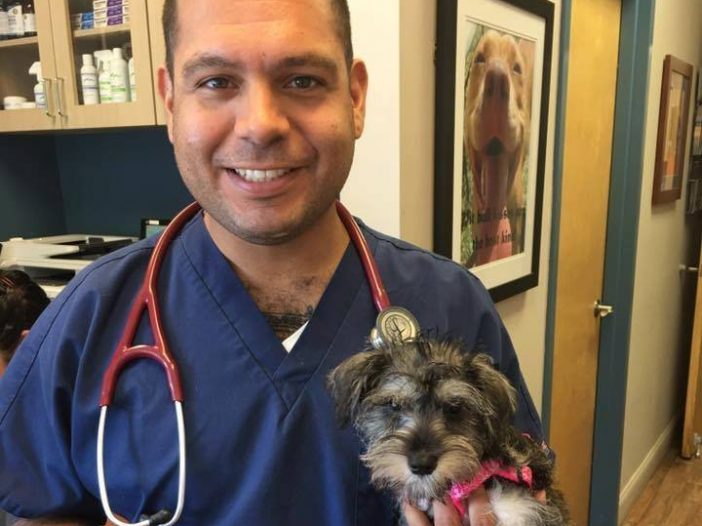
My ethnic identity can be elusive to others.
Sometimes when people first meet me, I can see a search in their eyes, trying to place it. People have guessed I was from a variety of countries and regions around the world, including: all of Latin America, South Asia, the Middle East, and even Polynesia. My eyes are light hazel, my hair is dark and curly, my skin a dark shade of olive. My first language was Spanish. I have no accent but my name gives it away because it sounds like it came straight out of a telenovela. Once, a few years ago, a client was scheduling an appointment with me and asked the receptionist if I spoke English or if I was even American. They eventually scheduled with another doctor.
My road to becoming a veterinarian was, as college admissions officers like to put it, “non-traditional.” After graduating undergrad with several cumulative years of biomedical research and plans to get a PhD, I took a detour, with dreams of opening a 24-hour vegan diner with a friend. But then the Great Recession hit and quashed my culinary dreams. Thankfully, I knew how to stay afloat in an expensive city by applying my skills in various part-time gigs for a couple of years until I found my calling to animal health by way of shelter work.
When I was offered admission to veterinary school I was also fortunate to receive a scholarship that would help cover tuition. Joyfully, I informed the veterinarian who wrote a letter of recommendation about the good news, but another veterinarian sitting next to her overheard our conversation and said, “I wish I was a minority so I could have gotten a scholarship.” My heart was crushed. Some people were never going to accept me as an equal. My GPA and GRE scores, research and work experience did not matter. It had to have been because of “affirmative action.”
Self-doubt and impostor syndrome crept in. Every opportunity a minority receives in academia feels subject to this suspicion. Did I only get scholarships because my family was poor and Latino? How many of my classmates and colleagues around me are questioning why I’m here?
I have known this shame all my life and it took me a long time to recognize it for what it was: internalized racism. I doubted myself because others had, simply because of the color of my skin. When I entered high school I was placed in a remedial level of science class by “accident” and struggled with the lack of challenge. I took advanced courses in the summer to catch up with my peers. Still, I questioned my own self-worth and over-compensated in every aspect of my life trying to prove to myself that I was not a fraud or stereotype. Whether it was by striving for a perfect GPA, double majoring in genetics and philosophy, or studying plant viruses over summer breaks, I was always emulating the “model minority” behaving appropriately around my white peers. This was the version of myself who would finally be accepted.
Since graduating veterinary school and a few bumpy years of learning to be the kind of health practitioner that I wanted to be, I have found my groove working in urban private practice. But I have never forgotten how it felt to be judged.
For my colleagues who are reading this and living through an uncomfortable discussion of race in the middle of 2020, I ask that you question ingrained prejudices you might have when you meet a professional or client from a different walk of life. Maybe their background is different from your own, but they have probably put in a lot of work to get to where they are. Maybe you received help or other privileges along the way that they didn’t have access to, and that’s not necessarily wrong. Life is not fair, but we can try to make it easier on everyone by being more kind and understanding.
There are also ways we can do better and build stronger links to underserved communities. Start by assuming every client cares about their pets because they brought them in to see us even if they can’t afford every test or treatment we recommend. Offer the best care to everyone regardless of how they look or have acted in the past because their circumstances may have changed.
Veterinary team members are only human. And like everyone else, we are not immune to bias. However, we serve diverse communities and have a responsibility to honor our commitment to animal health wherever it is needed.
To the client who once doubted my credentials, I was born in Washington, DC, but I hope you don’t hold that against me.
The views and opinions expressed in this article are those of the author and do not necessarily reflect the position of the DrAndyRoark.com editorial team.